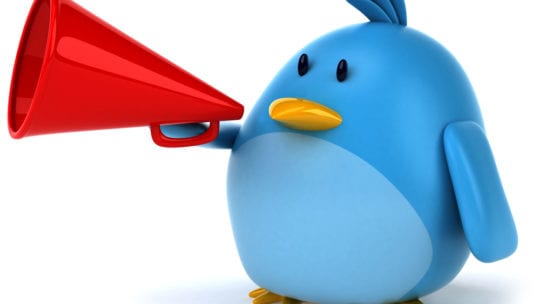
It is done.
The brouhaha that enveloped the Internet, when one of the richest men in the world wanted to buy one of the most influential social media platforms, may continue, but Elon Musk's purchase of Twitter (for a cool $44 billion, including $21 billion of his money) is finished.
A Twitter press release today (Apr. 25) announced a “definitive agreement” where Musk pays $54.20 per share in a cash transaction. Twitter (NYSE: TWTR) will be privately held after completion of the leveraged buyout.
This follows Musk's month-long, vacillating courting of the platform. On April 5 Twitter announced Musk’s board appointment, which six days later he rejected. The next two weeks played like a will-they-won’t-they romance, until just this weekend, when Musk's financing made a deal seem certain.
A Conundrum for Twitter PR
You can be sure the Twitter PR department has its hands full. A list of tasks will include contacting concerned employees about the company's future, responding to users who say they will abandon the platform and managing a flood of requests for product changes. Also, there is sure to be concern surrounding the future of professional communication at Twitter.
Musk is not known for placing a priority on traditional PR or communication strategies. You may remember Tesla disbanded its PR team, despite a string of car malfunctions and crashes.
Musk seems to prefer controlling his reputation, with one example including hosting an episode of "Saturday Night Live," where he addressed his quirks with candor. Musk appears to embrace, even enjoy, doing personal publicity.
I hope that even my worst critics remain on Twitter, because that is what free speech means
— Elon Musk (@elonmusk) April 25, 2022
However, professionals are professionals for a reason, and when you need to answer for a platform with more than 397 million users, you might seek help from the PR bench. Indeed, the Twitter PR team may be safer than we think, says Curtis Sparrer, Bospar PR principal and co-founder.
“There is an inordinate amount of press that has kept [Musk] busy: from his ‘funding secured tweet’ to a Bluetooth bug,” Sparrer says. “So while he claims not to have a PR team, someone is having to deal" with a lot of media. "In many ways it’s rich that Musk claims having a PR department is to ‘manipulate public opinion.’ Did he feel that way when he appeared on Saturday Night Live?”
Handling the Twitterverse
A more immediate job for anyone working in Twitter communications may be handling the flood of outrage/threats/woe/jubilation coming from its user base. As of the announcement, many users who disagree with Musk’s philosophies say they will leave to join Counter Social or TikTok. Others are taking a wait-and-see approach. And maybe their threats will just be that.
“Every social media acquisition tells a rather predictable narrative that never comes to fruition: users promise to quit; the new leadership promises not to make any big changes,” Sparrer says. “But then both sides cross their fingers. Users don’t leave—even though leadership makes tons of changes. From social media to climate change, we’re just frogs in a heated cauldron of water.”
Eliot Hoff, APCO’s global crisis practice lead, says it’s up to Musk to determine the future of the platform.
“It is difficult for many users to simply leave Twitter because of change in ownership,” Hoff says. “How Elon Musk manages the transition will either cement loyalty or drive away users. He needs to immediately reassure stakeholders that his intentions are to continue to grow the base and cement Twitter’s position in the market.”
For some, Twitter remains an important cornerstone of their daily work life. Social media managers, journalists, digital ad buyers, emergency responders and more depend on the platform for its ease of communication. Those users certainly will monitor the situation to determine if Twitter remains worth their time and effort.
A lot of us have no choice but to use social media for work or community. Leaving Twitter generally means going to other platforms owned by other billionaires/companies who do other terrible stuff. It's an unfortunate reality right now. Capitalism owns much of the internet. https://t.co/sjN7VpaiNu
— Mx. Amanda Jetté Knox (@MavenOfMayhem) April 25, 2022
Of course private companies have the right to run their organizations as they see fit. In this case, it could include deleting and censoring comments or removing individuals. However, decisions regarding Musk’s well-known desire for “free(r) speech” could influence Twitter's bottom line.
Should Musk's actions result in "less engagement" and fewer users, "advertising revenue will be impacted,” Otter PR publicist Mark Kaley says. “But whether to withstand the brunt of the potential reduction in revenue is the business owner's decision."
Kaley thinks Musk should "run the type of business he wants to run. If customers believe in the brand and want to continue using it, they will. Spotify did not disappear and neither will Twitter. However, the customer user base may change.”
Nicole Schuman is senior editor for PRNEWS. Follow her @buffalogal
